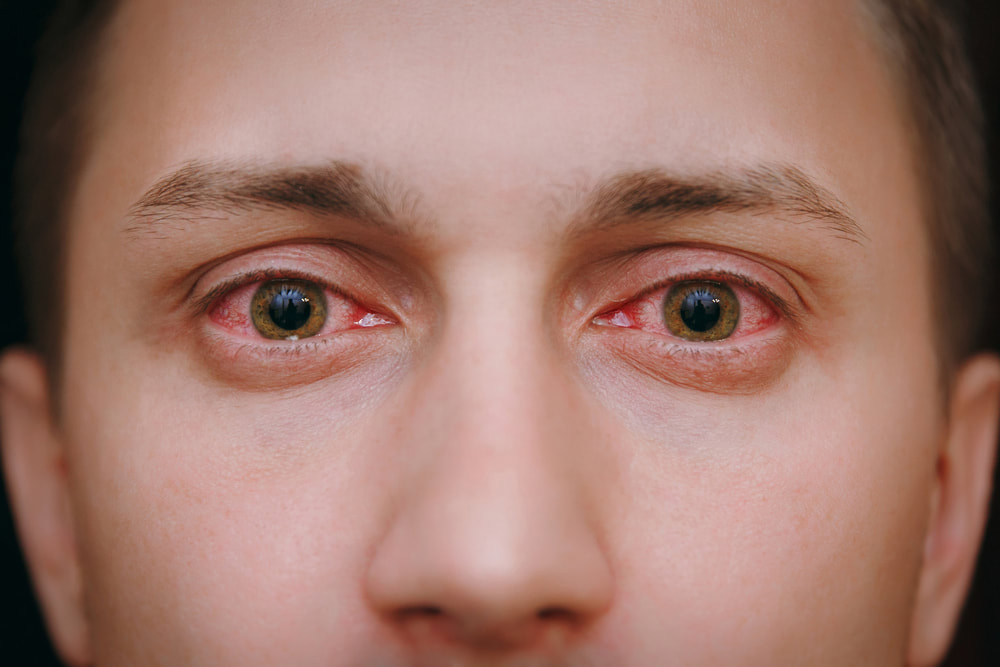What is strep?Strep infections are caused by the bacteria streptococcus. There are different types of streptococci. The bacteria are divided into a few groups, including the most common, group A strep and group B strep. Group A strep can cause an eye infection. Group A also usually causes strep throat and can also lead to more serious infections, such as scarlet fever. Group B strep can also cause infections, such as urinary tract infections and skin and soft tissue infections. In some cases, it may also lead to an eye infection. How can strep affect the eyes?Strep may cause an infection of the eye in the following ways: Bacterial conjunctivitis: Conjunctivitis involves an infection of the clear tissue that is over the white part of the eye. It can occur due to a virus or a bacterium. One of the most common causes of bacterial conjunctivitis is streptococci. Symptoms of conjunctivitis include:
Streptococcal endophthalmitis: Streptococcal endophthalmitis is a serious infection caused by group B strep. Streptococcal endophthalmitis involves an infection of the fluid or tissue inside the eyeball. Thankfully, the infection is not common. It most often occurs as a complication from eye surgery or trauma to the eye. According to the American Academy of Ophthalmology, a puncture wound to the eye is the most common type of trauma that may lead to endophthalmitis. What happens is streptococcal bacteria can enter the eye through a wound or surgical incision and lead to an infection. Symptoms of endophthalmitis include the following:
Endophthalmitis is a serious infection that requires immediate medical intervention. Without quick treatment, endophthalmitis results in a high rate of vision loss. TreatmentTreatment for strep-related eye infections varies depending on the part of the eye affected and the extent of the symptoms. In general, bacterial conjunctivitis due to strep may be treated with antibiotic eye drops to prevent the spread of the infection. If you have a mild infection, antibiotic treatment may not be necessary, and symptoms may resolve in about a week. Additional treatments to ease symptoms of bacterial conjunctivitis includes applying cold compresses to ease itchiness and burning. Using artificial tears or eye drops to lubricate the eyes and reduce discomfort may also be useful. Treatment for bacterial endophthalmitis always includes antibiotics. Steroids may also be prescribed to decrease inflammation and swelling. In some instances, when the infection becomes severe or if antibiotics do not help, surgery may be needed. Vitrectomy surgery involves removing the vitreous gel from the eye to prevent the spread of the infection. Preventing strep infectionsAlthough streptococcus is a very common form of bacteria, there are several ways to reduce your risk of developing an eye infection. Consider the following:
Wash your hands: Washing your hands often is one of the best ways to prevent infections, including those caused by strep. Avoid rubbing your eyes: When you rub your eyes, any bacteria on your hands can pass into your eye. Don’t share eye makeup or towels: Sharing anything that touches your eyes, such as makeup or a towel, may also mean that you share bacteria. Use good contact lens hygiene: Always make sure your hands are clean when you handle your contact lenses. Remember, eye infections can become serious and should never be ignored. If you have any questions about eye infections, we are happy to help. If you would like to ask whether an appointment with one of our eye doctors would be appropriate at this time, call our office at 508-746-8600. Comments are closed.
|
EYE HEALTH BLOGCategories
All
Archives
July 2024
|
|
Kadrmas Eye Care New England
55 Commerce Way, Plymouth, MA 02360
14 Tobey Road, Wareham, MA 02571 133 Falmouth Road (Rt 28), Mashpee, MA 02649 |
Phone Number:
1-508-746-8600 Hours: Monday through Friday — 8 AM – 4:30 PM |


 RSS Feed
RSS Feed
